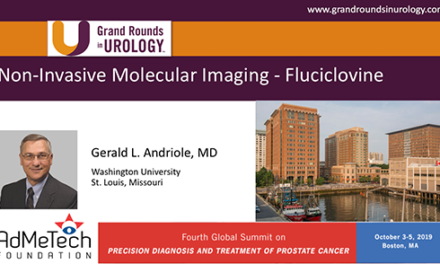Daniel P. Petrylak, MD, Yale Cancer Center, New Haven, Connecticut, discusses some of the steps when first treating advanced prostate cancer patients.
Interview produced by Prostatepedia
Keywords: biomarkers, prostate cancer, AR-V7, BRCA, androgen receptor
ABOUT THE AUTHOR
Daniel P. Petrylak, MD, leads the genitourinary cancers medical oncology team at Smilow Cancer Hospital as director of the genitourinary cancer research group, professor, and co-director of the Cancer Signaling Network program. Dr. Petrylak joined Yale from Herbert Irving Cancer Center at Columbia University Medical Center with New York-Presbyterian Hospital, where he served as Professor of Medicine (Medical Oncology) and Urology and began his appointment in September of 2012. After serving for more than 20 years as the advanced bladder chair for SWOG, Dr. Petrylak is now the Vice Chair of the Genitourinary Committee.





